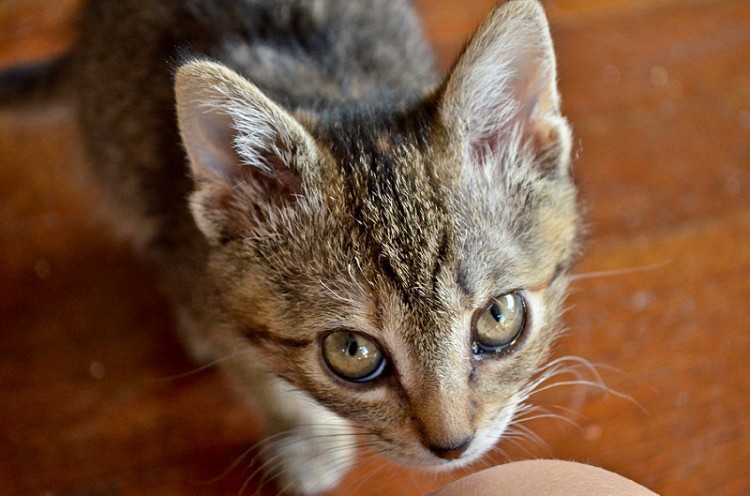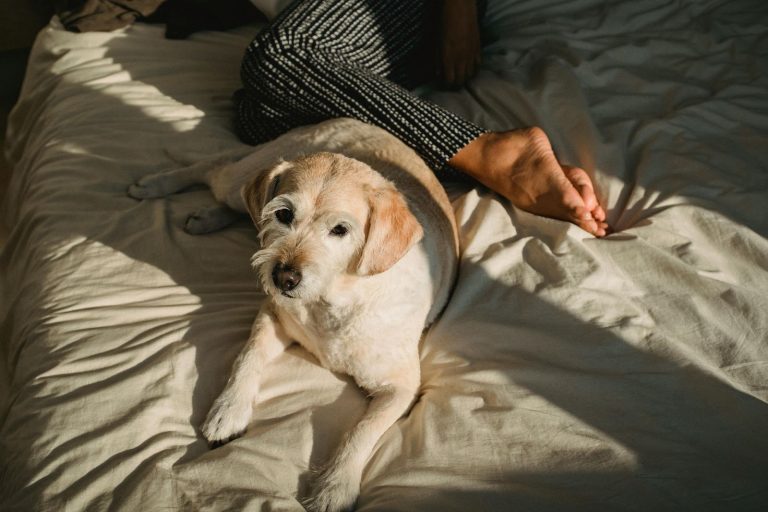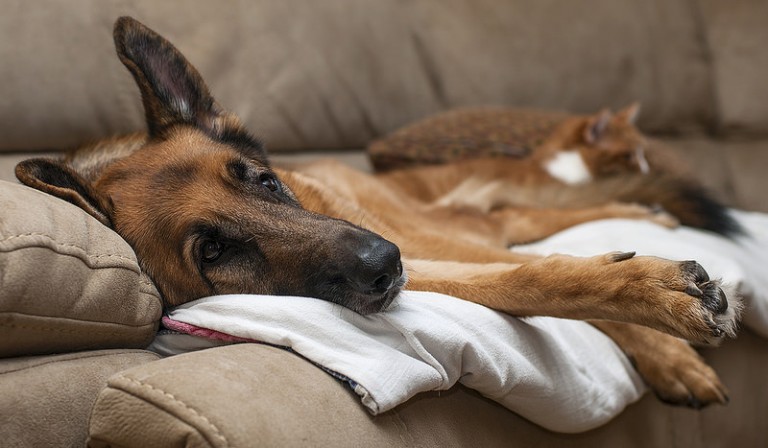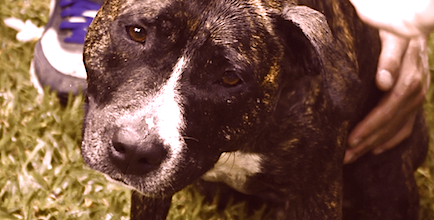Pneumonia in a Dog or Cat
This condition is nothing to mess around with. If your pet is showing symptoms consistent with pneumonia, see the vet immediately.

Pneumonia is a serious, potentially fatal lung infection.
Although it’s more common in dogs than in cats, neither species is immune to the condition. Any animal of any age can succumb to pneumonia, but the young and the elderly are at greatest risk because their immune systems are weaker and less able to fight off infection.
Infection enters the lungs when bacteria are breathed in or if food accidentally gets sucked down the windpipe. If bacteria (or viruses, or even fungi) establish themselves in the lung, the body tries to get rid of them by mobilizing white cells and healing fluids.
Unfortunately, the very act of fighting infection compromises the lungs’ ability to exchange oxygen, and many patients struggle to breathe. How serious the pneumonia is depends on the number of bacteria contaminating the lungs, how aggressive they are and the strength of the host’s immune system.

Don’t leave your pet’s safety to chance
Sign up for Petful recall alerts today.

Symptoms
The symptoms are those of a severe chest infection and include coughing and labored breathing.
The animal is generally very unwell, and the signs include a depressed pet who is running a fever with a poor appetite, heavy breathing and weight loss. Left untreated, the consequences of pneumonia can be very serious indeed.
Causes
The infectious agent that colonizes the lungs may be bacterial, viral or fungal.
Bacterial infections are more common — bacteria are normal inhabitants of the mouth and gut. The implication of this is that if an animal aspirates (sucks fluid into the lungs) saliva or vomit, this seeds bacteria in the lung, which is the precursor to infection.
Indeed, having low numbers of bacteria in the lungs is normal, even in healthy animals. But the key word here is “healthy” — the body’s immune system keeps the numbers in check.
The other side of the coin is that elderly animals or those with health issues (such as Cushing’s disease, diabetes or underactive thyroid glands) have a reduced ability to fight infection.

Diagnosis
Chest radiographs are key to diagnosing pneumonia.
Certain lung patterns show up on an X-ray that point toward pneumonia. No one test can give the full picture, but taken in context with a sick, feverish animal who has difficulty breathing — and especially if he has a raised white cell count (a sign of infection) — this provides a strong suspicion of pneumonia, sufficient to warrant antibiotic therapy.
Other tests may help with diagnosis, such as tracheal washes (to sample cells and bacteria from the lungs) and bronchoscopy (putting a fiber-optic camera down the airways). The drawback is that, in a very sick animal, the patient often is not strong enough to safely get through the test.
Treatment
Treatment requires both antibiotics to fight infection and supportive care to help the pet’s breathing.
The range of bacteria causing pneumonia can be quite broad, and combining a couple antibiotics can help kill all of them. While these work, the pet must rest to lessen his need for oxygen.
Fluid, debris and bacteria deep within the lungs make it difficult for the animal to breathe. Placing her in an oxygen tent or placing a nasal catheter to supplement her with oxygen can greatly ease her respiratory distress.
Animals with pneumonia are often dehydrated, and this interferes with the ability of the cilia (fine hairs) in the lungs to take debris out of harm’s way. So intravenous fluids are important — not only to rehydrate the patient but also to improve the lung’s defense mechanisms.
Prevention
Older pets’ immune systems are often weakened by disease elsewhere in the body — this can predispose your pet to mild infections running out of control.
If your pet’s not as well as he could be, perhaps because he’s drinking more or losing weight, talk to your vet. When a problem is identified and treated, such as diabetes or Cushing’s disease, it goes a long way in protecting your pet against pneumonia.
References
- “Pneumonia.” Tilley & Smith. The Five-Minute Veterinary Consult. Publisher: Williams & Wilkins. 952–953.
- “Infectious Pneumonia.” Roudebush. 1992. Current Veterinary Therapy XI. Publisher: W. B. Saunders. 795–800.
This pet health content was written by a veterinarian, Dr. Pippa Elliott, BVMS, MRCVS. It was last reviewed Oct. 13, 2018.







